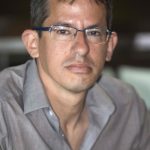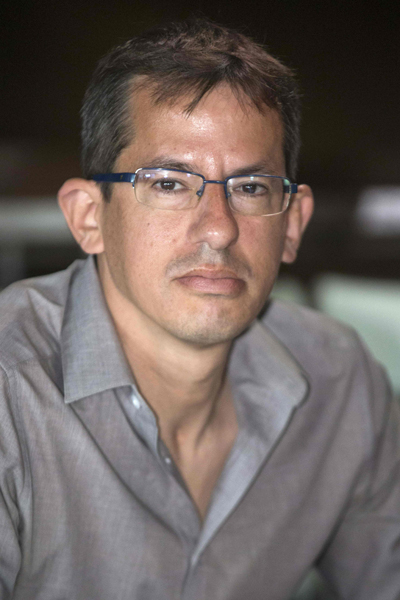 Hagai El-Ad
Hagai El-AdJERUSALEM: An Israeli non-governmental organization has accused the Jewish state of "apartheid" in its treatment of Palestinians - a taboo-breaking move that has seen its representatives banned from speaking in schools. B'Tselem said it carefully weighed its decision to use the hugely emotive phrase but concluded it was an accurate description of Israel's attitude both to residents of the occupied Palestinian territories and to its own Arab citizens.
"We cannot avoid the conclusion that it is a regime that is working to advance and cement the supremacy of one group of people - Jews - over Palestinians," B'Tselem chief Hagai el-Ad told AFP. "That is the textbook definition of an apartheid regime." he added. "I agree that it is a strong word but we are not using it lightly."
Israel occupied the West Bank, including Arab east Jerusalem, and the Gaza Strip in the Six-Day War of 1967. Today it is home to at least five million Palestinians defined by the United Nations as living under Israeli occupation. Arab Israelis - Palestinians who stayed on their land following the Jewish state's creation in 1948 and their descendants - make up about 20 percent of Israel's roughly nine million people.
By law they have rights equal to those of Jewish citizens, but they say that in practice they suffer discrimination in employment, housing, policing and other essentials. "More than 14 million people, roughly half of them Jews and the other half Palestinians, live between the Jordan River and the Mediterranean Sea under a single rule," says B'Tselem's hard-hitting analysis "This is Apartheid," published last week.
Palestinians, including NGOs, routinely use the term originally coined to describe the system of institutionalized racial segregation that existed in South Africa until the early 1990s. But its use by B'Tselem - an established Israeli organization founded in the late 1980s - has brought shock. Gideon Levy, writing in the left-leaning Israeli daily Haaretz at the weekend, called it "revolutionary". "Get to know it: apartheid. An apartheid state. We live in one, we are part of it," he added. Other Israeli media paid scant attention to the B'Tselem report, contrary to Arab and international media organizations.
The B'Tselem document enraged Education Minister Yoav Gallant, of Prime Minister Benjamin Netanyahu's right-wing Likud party. Straight after its publication, he issued a ban on the organisation giving talks to high school pupils, as it has regularly done in the past along with other civil society groups. But the following day, the prestigious Hebrew Reali School in the northern city of Haifa defied the edict and around 300 pupils in their senior year took part in a Zoom lecture and discussion with el-Ad.
He said that one of the teenagers asked if B'Tselem was not being extremist. "I answered saying these are not extreme statements, this is the reality of oppression of apartheid, that is an extreme reality." He said that among key factors in his organization's position was the passing in 2018 of the so-called Nation-State Law which declared Israel as the "national home of the Jewish people," and removed the status of Arabic as an official language in Israel.
It was slammed by critics as legally downgrading Arabs to second-class citizens. Another was Netanyahu's US-backed plan last year to annex large swathes of the occupied West Bank, a scheme that was put on hold in a normalization agreement with the United Arab Emirates announced in August. "A threshold has been crossed," el-Ad said.
His group's report was unveiled days before Donald Trump - a staunch backer of Netanyahu and Israeli settlement in the West Bank - hands over the White House to Joe Biden. El-Ad says the timing is a "coincidence" but he hopes the "progressive wing" of Biden's Democratic Party will nudge the new president, who is committed to promoting human rights, to water down US support for Israel's current policies.
Failing so far to stir broad debate on the issues at home, he hopes that there might be a greater response abroad. "Over the past few years there has been a deterioration in discourse which I attribute in large part to international inaction," he said. "There are more settlements, more apartheid, and no consequences." - AFP










